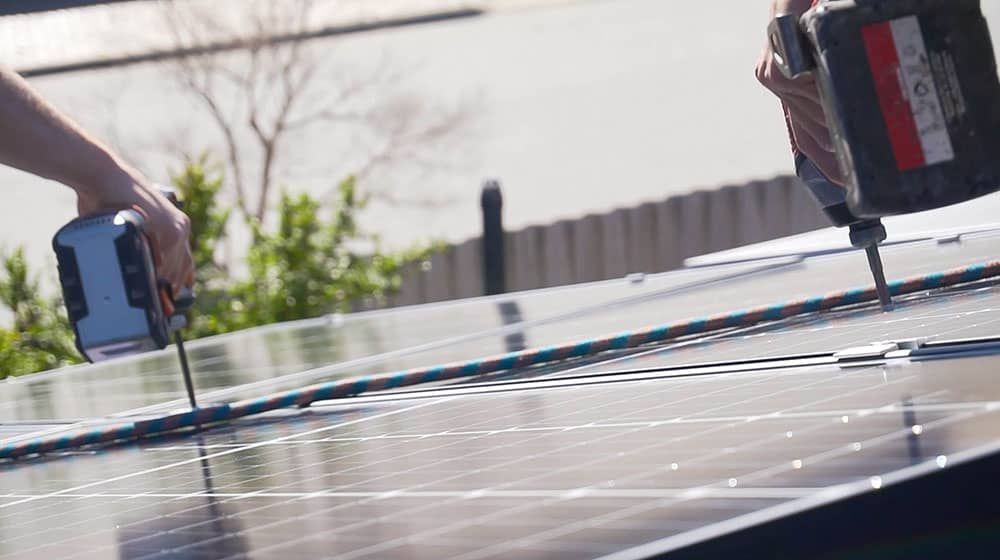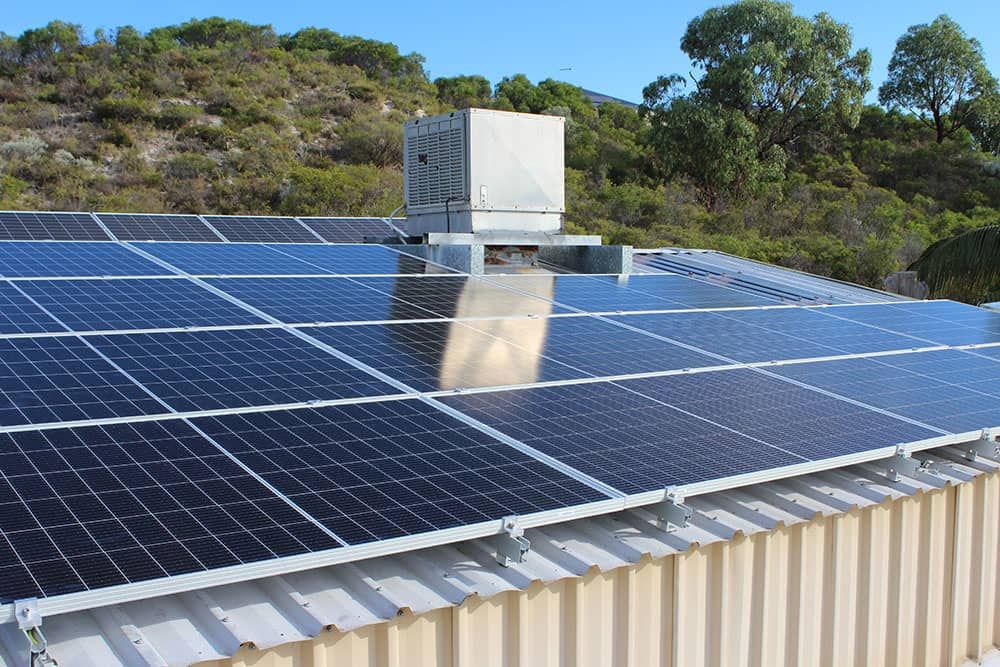On the surface, solar-powered systems are pretty much easy to understand but some people do solar mistakes. Just go for good, Tier-1 panels, choose a quality inverter, and perhaps add battery storage to power your appliances. But the reality is more complicated and requires research and professional guidance.
Top eight mistakes Australians make when they buy Solar
EasySolar is here to make your purchase less of a hassle. In this blog post, you will find the top eight mistakes Australians make when they buy solar. You will also learn why they are blunders you should never make.
- Believing Solar is Not Efficient for Their Home Due to the Roof OrientationDoes your roof face the north? Are you surrounded by trees, and they cover your roof? That means you will get the most out of solar energy, right? Wrong! Solar panels are more efficient than ever. In Australia, panels should typically face the north because we’re located in the southern hemisphere. The northern portion receives the most sun. For Perth and the rest of WA, 17-23 degrees north-east panels can get the maximum energy yield.
However, even if your panels don’t face north, there will only be 10 to 15% production loss, which is negligible. You can say that solar is well worth the investment.
If you’re going to be thorough on these percentages, you should first consider the time of day you use the most electricity. From there, you can select the best orientation for your home. For example, if you tend to heavily consume power in the morning, your panels may have to face the east.
Meanwhile, if you use the most electricity in the evening, choose west. Understanding how solar power is produced can help you in making the right choice, as well. Of course, you can never go wrong with the help of a reliable installer.
- Not Knowing How Big (or Small) the System Should BePeople think that small and cheap solar systems will help them save more money. But our post explains to homeowners why they should never have the wrong size, low-quality panels.
The size of the system depends on two factors:
- How much you’re willing to spend
- How much power your home or office requires
The size of your solar power system will be in watts or kilowatts. The number describes the peak output, which tells you how much electricity it generates on a clear sunny day at peak time. For example, if the package says 5kW, it will produce 5,000 watts or five kilowatts.
But how do you know what size is appropriate for your property? Look at your most recent electricity bill to know how many kilowatt-hours (note that this is not the same as kW) you consume in the last four quarters. Add all the previous four quarters, which tells you the amount of power you use each year.
Let’s say you get a sum of 6,000 kWh. Divide this number by 365 to get your daily usage. You get 16.4 in this example. Depending on your location, divide the daily kWh by the nearest main city’s kWh. For Perth, it is 4.4 kWh. You get 3.7, which is the size of the solar system you need.
- Waiting For Batteries To Be a Lot CheaperIt’s no secret that solar panels had the reputation that they were only for the wealthy. But times have changed. They have become more affordable, which is why proponents of batteries for solar systems put off buying solar. They want to wait until they see the price of batteries reach an all-time low. After all, solar panels and even inverters are cheaper, so it probably means the batteries will experience a significant drop, too, right?
Unfortunately, it’s not beneficial for you to wait. The best time to buy solar is now when there are still solar rebates and buyback schemes that you can take advantage of. Take, for example, the very recent stimulus package from the government, including the instant asset write-off for commercial properties. Due to COVID-19, solar investment write-off has increased to $150,000. For more information, please read our blog post about this topic here.
There is urgency in adopting this energy. While you can still enjoy lower electricity bills and energy efficiency, the availability of schemes and incentives make owning solar more enticing.
- Believing Solar is Not Efficient for Their Home Due to the Roof OrientationDoes your roof face the north? Are you surrounded by trees, and they cover your roof? That means you will get the most out of solar energy, right? Wrong! Solar panels are more efficient than ever. In Australia, panels should typically face the north because we’re located in the southern hemisphere. The northern portion receives the most sun. For Perth and the rest of WA, 17-23 degrees north-east panels can get the maximum energy yield.

- Not Researching Enough for QuotesThis mistake is pretty self-explanatory. Contact as many retailers and installers as you can. It is time-consuming, but it is well worth the effort to get more than one quote. Here at Easy Solar, we provide free quotes to our customers. Plus, we have financing options for you. But we encourage you to get from other installers, as well. That way, you can check which has the best offer. At the same time, you will know the shady companies with overpriced systems and services.
- Not Scrutinising the Installer EnoughWe’re sure you do your research when you buy a car or a house. You take time before you make your final choice. You should exert the same effort when buying a solar system. Installers who do not want to be bothered by your questions but only entertain those who will buy should be avoided.
Take a look at the installer’s website and read the testimonials from previous clients. Search the company on Google and talk to the representative before committing. You have plenty of options, and it is important that you do your independent research prior to your purchase. Here at Easy Solar, we answer your questions patiently and as exhaustively as we can. Contact us so we can start.
- Being Unaware of the Consumer Protection Laws in AustraliaAs a consumer, the law is on your side. You just have to be aware of these protections. For example, you’re entitled to the full warranty of the solar panels and inverter you have. Never fall for this trick where the installer tells you that you need to have the system serviced once every year or so. Your warranty remains, as long as you follow the manufacturer and installer instructions.
Solar systems do require servicing, but definitely not every year – not even every two years. If you are confident that you have a good quality system, it most probably needs service once every five years. Also, there are no maintenance fees to pay, which will allow you to keep the warranty. Warranties are given to customers automatically and will remain until the mentioned duration.
Understand that there are four types of warranties you get from the manufacturer, namely:
- Workmanship
- Panel warranties
- Inverter warranties
- Performance
Look for an inverter with a 10-year warranty and at least 10 years for the solar panels. Workmanship should be around five years, which will be enough for racking and cabling.
- Not Calculating Your Solar RebateUsing solar to power your home is a way to save electricity and homeowners know that they can get rebates. However, what most people are not aware of is exactly how much they can get in return for purchasing and installing solar.
Rebates can be complex, but it is not an excuse to be unaware of them, especially how to calculate your paybacks. The federal government offers the solar rebate while the state government sets the feed-in tariff.
Because of these paybacks, users think that they can either:
- Buy a suitable-sized system for their home or office and be free from paying their electricity bills. At the same time, they will receive a cheque for the power they give back to the grid.
- Gain only the benefits listed on their power bill.
The two points above are two concepts that many users do not understand. For those in WA, we have the details on the solar buyback scheme here.
- Failing to Future-Proof the Solar SystemThe solar system should at least be useful for your home or business for the next 25 years. During the next few years, your power requirements may change. Are you planning to have kids or perhaps expand your home? Always consider your future needs and wants. You may be able to connect your system to battery storage, but you should still be mindful before you make any decision.
Ask your Easy Solar installer how your solar system might change in the next few years. Can it be expanded using batteries? Is that addition cost-effective or should you buy a bigger capacity now to save? Contact us today so that we can help you avoid the mistakes listed above and you can have the most efficient solar system for your home or business.
Solar is a simple concept at the end of the day, but the components and expertise going into the correct system are crucial. You should be speaking to the experts at Easy Solar.
FAQs
Q: How can I avoid choosing the wrong system size?
A: To avoid choosing the wrong system size, assess your energy consumption accurately and consider future needs. Consulting with a solar professional can help determine the appropriate system size for your specific requirements.
Q: Why is energy efficiency important when buying solar panels?
A: Prioritizing energy efficiency before installing solar panels helps optimize their performance and reduces the system size needed. Implementing energy-saving measures can enhance the overall effectiveness of your solar energy system.
Q: Why should I consider long-term savings when buying solar panels?
A: Considering long-term savings is essential because solar panels provide financial benefits over time through reduced electricity bills and potential return on investment. Evaluating the long-term financial viability helps assess the overall cost-effectiveness of the investment.
Q: How can I ensure solar panel quality?
A: Ensuring solar panel quality involves choosing reputable brands known for their reliability and performance. Look for panels that meet industry standards and certifications, and consider the warranty and efficiency ratings when making a selection.
Q: What permits and regulations should I be aware of when installing solar panels?
A: The permits and regulations for installing solar panels vary by location. It is important to research and understand the specific requirements in your area, including obtaining permits and complying with zoning, building codes, and utility regulations.







